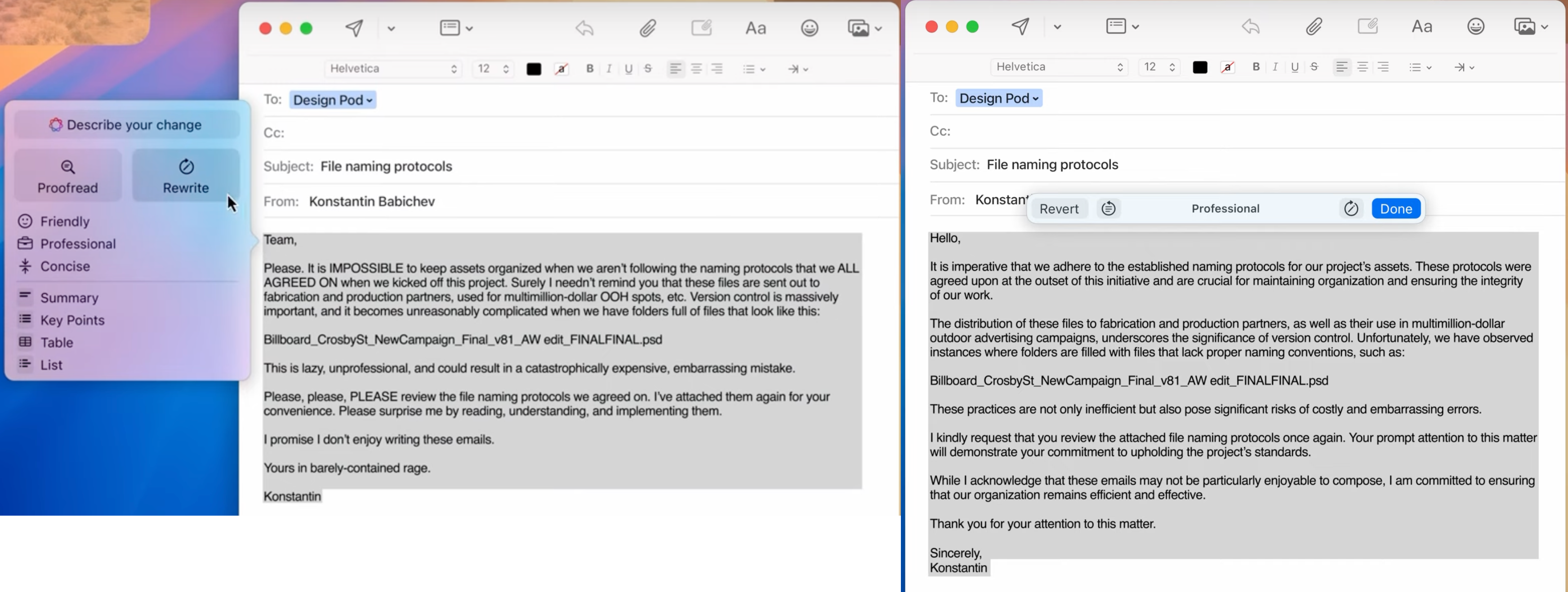I highlighted what I might have wanted to carry over to a more professional rewrite. (If the filename was real, I’d sanitize it so as not to single out any one employee, but I do think it’s an effective example.)
Using these powerful tools
is lazy, unprofessional, andcould result in a catastrophically expensive, embarrassing mistake
if someone’s not careful :)
Source: Apple Intelligence on Apple.com
OK, this is kinda funny. I wanted to make sure I’d actually seen this in WWDC. Turns out they showed a different rewrite (embedded below):

I think I see what happened. The [macOS] rewrite shown is more 1:1, but comes out sounding goofy (very LLM). On their site, they didn’t want to show that, but then they used an [iOS] rewrite that missed e.g. the filename used as an example. Even someone skimming the email should see that filename was garbage and be afraid of getting called out in a meeting for typing a name like that in the future, so I think it’s a miss not to have it.
Not to make a mountain out of a small example or two, but I do hope folks are aware they’d do best to read every word of anything generated for them. Reminds me: I’m excited for that word-by-word suggestion feature as it allows for one-by-one modifications to be very intentionally made.


The Mac rewrite misused “compose” at the end, as well. Confusing, and could be read as self-martyring.You’re absolutely right that anything the LLM generates or rewrites needs to be reviewed for accuracy word by word, which rather limits the utility to most people. Imagine all the interpersonal problems that could be caused by the LLM using the wrong word, phrase, conjugation, context, etc. Imagine all the hand-typed stuff that will be blamed on the LLM if it lands badly…How is “compose” misused?
Oh god, you’re right, it used it correctly, it’s just self-martyring. That’s much worse. “This hurts me more than it hurts you”. Ugh.
I think the point was more along the lines of “it will be hard, but you [the recipient] will have to write your subordinates to cut the crap”